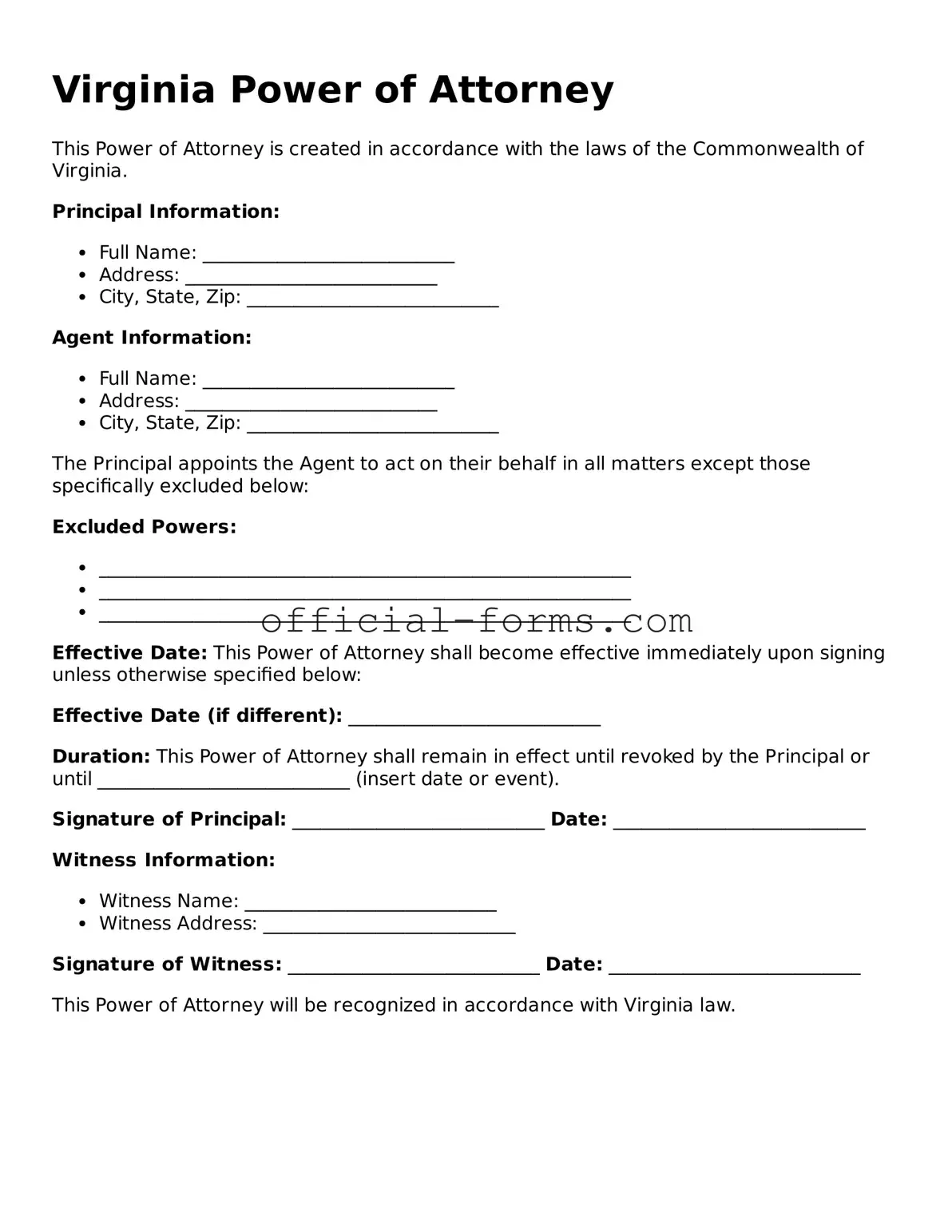Official Virginia Power of Attorney Document
The Virginia Power of Attorney form is a legal document that allows an individual, known as the principal, to designate another person, referred to as the agent, to act on their behalf in financial or legal matters. This form can be crucial for managing affairs when the principal is unable to do so due to various circumstances, such as illness or absence. Understanding its provisions and implications is essential for anyone considering this important legal tool.
Open My Power of Attorney Now

Official Virginia Power of Attorney Document
Open My Power of Attorney Now
Don’t leave your form incomplete
Finish Power of Attorney online quickly from start to download.
Open My Power of Attorney Now
or
➤ PDF
